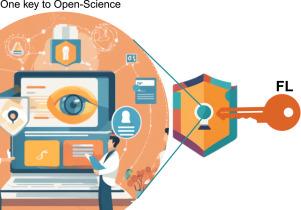FedDeepInsight—A privacy-first federated learning architecture for medical data
Q1 Medicine
引用次数: 0
Abstract
Medical data, hospital patient-specific data, are highly sensitive to privacy and are essential for research in the biomedical field. Although there are many new approaches to creating databases that ensure data must be FAIR and GDPR compliant, these approaches require the intervention of secured data handlers. To address this gap, this study investigates and designs a standardized Federated Learning (FL) architecture for medical data. Specifically, we examine traditional and novel methods for preprocessing, handling, and utilizing such data in FL. We develop “FedDeepInsight”, a novel data transformation framework that enables tabular data augmentation and transformation into image data prior to neural network training and FL. Additionally, we analyze how the type of dataset influences the performance of federated learning algorithms and machine learning models in terms of accuracy and efficiency. Our results indicate that FedAvg is the most reliable aggregation algorithm, providing superior accuracy, stability, and convergence, and FedYogi is also viable with well-tuned hyperparameters. For privacy protection, we recommend Differential Privacy (DP) with calibrated noise multipliers and initial upper and lower bounds for stability. Ultimately, we emerge as a promising solution for secure, privacy-preserving federation learning in healthcare.

feddeepinsight——隐私优先的医疗数据联邦学习架构
医疗数据,医院患者特定数据,对隐私高度敏感,对生物医学领域的研究至关重要。尽管有许多新方法可以创建数据库,确保数据必须公平且符合GDPR,但这些方法需要安全数据处理程序的干预。为了解决这一差距,本研究调查并设计了一个标准化的医疗数据联邦学习(FL)架构。具体而言,我们研究了传统和新颖的方法来预处理、处理和利用FL中的此类数据。我们开发了“FedDeepInsight”,这是一种新颖的数据转换框架,可以在神经网络训练和FL之前将表格数据增强并转换为图像数据。此外,我们分析了数据集的类型如何影响联邦学习算法和机器学习模型在准确性和效率方面的性能。我们的结果表明,FedYogi是最可靠的聚合算法,提供了优越的精度、稳定性和收敛性,并且FedYogi在经过良好调优的超参数下也是可行的。对于隐私保护,我们推荐差分隐私(DP)与校准噪声乘法器和初始上限和下限的稳定性。最终,我们将成为医疗保健领域安全、保护隐私的联合学习的有前途的解决方案。
本文章由计算机程序翻译,如有差异,请以英文原文为准。
求助全文
约1分钟内获得全文
求助全文
来源期刊

Informatics in Medicine Unlocked
Medicine-Health Informatics
CiteScore
9.50
自引率
0.00%
发文量
282
审稿时长
39 days
期刊介绍:
Informatics in Medicine Unlocked (IMU) is an international gold open access journal covering a broad spectrum of topics within medical informatics, including (but not limited to) papers focusing on imaging, pathology, teledermatology, public health, ophthalmological, nursing and translational medicine informatics. The full papers that are published in the journal are accessible to all who visit the website.
 求助内容:
求助内容: 应助结果提醒方式:
应助结果提醒方式:


